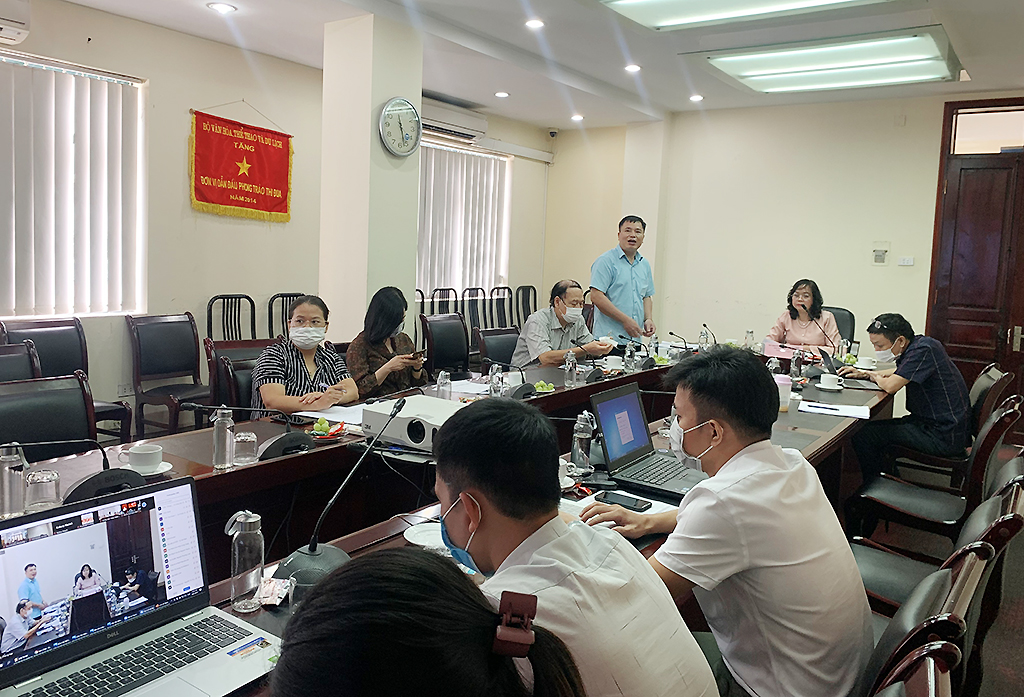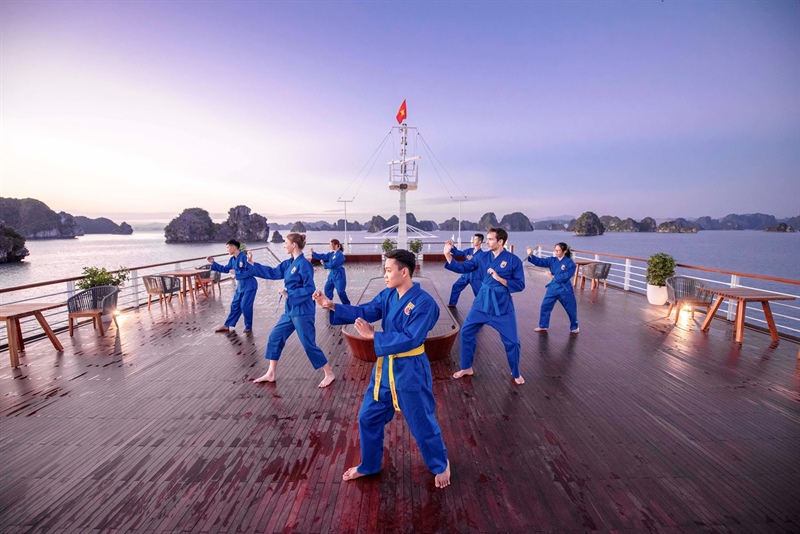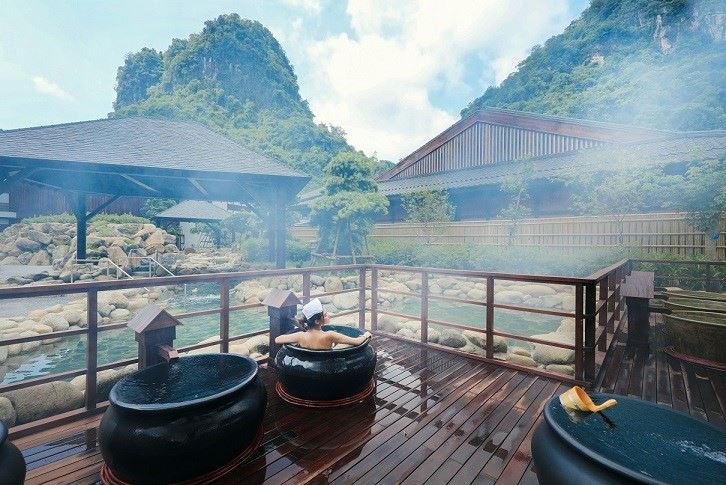
The online workshop on wellness tourism in Vietnam. Photo: TITC
On October 6, the Institute of Tourism Development Research (under the Vietnam National Administration of Tourism – VNAT) held an online workshop to discuss the potential, current status, identification of the problems and solutions to develop wellness tourism in Vietnam.
The workshop was presided by Vice Chairwoman of VNAT Nguyen Thi Thanh Huong, and attended by representatives of provincial departments of tourism management, local tourism associations, Oriental Traditional Medicine Association, Yoga Federation, travel experts and tourism businesses.
Ms. Nguyen Thi Thanh Huong said “The emergence of the Covid-19 pandemic and environmental pollution problems have made people pay more attention to the health care and type of wellness tourism. In the coming time, the trend of tourism will change markedly, especially with long-term trips of tourists, which will no longer be mere sightseeing trips but instead a form of leisure tourism with combination of health care improvement”.
According to many tourism experts, currently, this type of tourism is developing rapidly everywhere from North America to Europe, Asia-Pacific and will grow faster in the coming years.
It must be affirmed that Vietnam has a lot of potentials to develop wellness tourism

Vietnam has a lot of potentials to develop wellness tourism. Photo: internet
Vietnam owns rich and diverse natural mineral water resources, valuable for medical treatment, nursing and health care. The Geology sector has discovered about 400 hot mineral water sources across the country, of which 287 sources have been investigated, researched and analyzed and classified into 11 different types, which have both therapeutic and medicinal effects, exploited into bottled drinking water for human life. With 11 types of discovered mineral water, Vietnam is the convergence of most of the major mineral water known in the world. Vietnam's mineral water is exploited to treat many different diseases. These hot mineral waters have become places of rest and recuperation favored by many tourists.
Vietnam has a coastline of 3,260 km with many beautiful beaches and favorable for resort tourism development. In addition, the sea has 2,773 large and small islands. The coastal islands have fine sand beaches, clear blue water, quiet and peaceful, which are very suitable for leisure and medical tourism.
Vietnam has an extremely rich and diverse system of medicinal plants with about 3,850 species of plants used as medicine. Currently, the Ministry of Health has granted registration numbers to more than 2,000 traditional medicine preparations produced by more than 450 traditional medicine and pharmacy establishments. Vietnam has a famous traditional medicine background with a large team of traditional medicine doctors, 5 research institutes with departments of traditional medicine and pharmacy, 46 provincial traditional medicine hospitals, 80% of large hospitals have a department or group of traditional medicine.
In addition, in Vietnam, besides a rich system of historical relics, there are many pagodas, viharas and monasteries with attractive landscapes that can be exploited to develop tourism in general and develop tourism type associated with Zen and Yoga in particular.

Yoko Onsen Quang Hanh, Quang Ninh Province. Photo: internet
Currently, there are many hot mineral springs in Vietnam that are invested to attract tourists such as: My Lam hot spring tourist site (in Tuyen Quang) invested by Vinpearl Group, hot mineral spring resort of Quang Hanh (in Quang Ninh Province) invested by SunGroup, or Thanh Thuy (in Phu Tho) exploited by YoKo group according to the Japanese Onsen model, etc. Some resorts provide mud bath, spa, sauna, and cooling services such as V-resort (in Hoa Binh), Alba Thanh Tan (in Thua Thien hue), Hundred Eggs tourist area (in Khanh Hoa), Saigon-Binh Chau hot mineral resort (in Ba Ria - Vung Tau)...
In addition, travel companies have started offering meditation-yoga tourism products. According to tour organizers, the places where nature is still untouched, quiet, and fresh air are suitable for visitors to practice yoga, meditate, and enjoy spa treatments to relieve stress. These tours provide trainers to guide visitors.
In the workshop, the delegates discussed on the challenges, opportunities and solutions to develop the wellness tourism in Vietnam. They also exchanged about the matters such as training for workforce, improving the service quality, diversifying the forms of wellness tourism, strengthening promotion in the domestic and international markets to attract tourists. The government needs to have policies and plans to develop the wellness tourism. The sectors of tourism and health need coordinating to provide guidance for medical facilities as well as tourism businesses on ways and solutions to expand this type of tourism.
Concluding the workshop, Mr. Nguyen Anh Tuan, Director of the Institute of Tourism Development and Research said, the workshop has clarified the criteria for identifying and distinguishing wellness tourism from other types of tourism, essential conditions for the development of wellness tourism in Vietnam; assessing the difficulties, advantages, opportunities and challenges in the development of wellness tourism in Vietnam. At the same time, it also gives appropriate initiatives and recommendations to develop wellness tourism in Vietnam to meet the requirements of Vietnam's tourism development in the context of international competition and integration, in line with current trends".
Tourism Information Technology Center